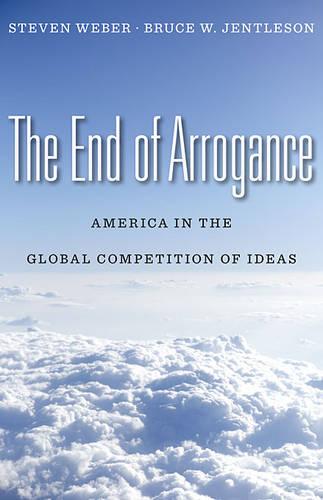Awards
- Nominated for Lionel Gelber Prize 2011
Overview
Free-market capitalism, hegemony, Western culture, peace, and democracy-the ideas that shaped world politics in the twentieth century and underpinned American foreign policy-have lost a good deal of their strength. Authority is now more contested and power more diffuse. Hegemony (benign or otherwise) is no longer a choice, not for the United States, for China, or for anyone else. Steven Weber and Bruce Jentleson are not declinists, but they argue that the United States must take a different stance toward the rest of the world in this, the twenty-first century. Now that we can't dominate others, we must rely on strategy, making trade-offs and focusing our efforts. And they do not mean military strategy, such as ""the global war on terror."" Rather, we must compete in the global marketplace of ideas-with state-directed capitalism, with charismatic authoritarian leaders, with jihadism. In politics, ideas and influence are now critical currency. At the core of our efforts must be a new conception of the world order based on mutuality, and of a just society that inspires and embraces people around the world.
Full Product Details
Author: Steven Weber ,
Bruce W. Jentleson
Publisher: Harvard University Press
Imprint: Harvard University Press
Dimensions:
Width: 12.70cm
, Height: 2.10cm
, Length: 19.70cm
Weight: 0.322kg
ISBN: 9780674058187
ISBN 10: 0674058186
Pages: 224
Publication Date: 30 September 2010
Audience:
Professional and scholarly
,
College/higher education
,
Professional & Vocational
,
Tertiary & Higher Education
Format: Hardback
Publisher's Status: Active
Availability: Out of stock

The supplier is temporarily out of stock of this item. It will be ordered for you on backorder and shipped when it becomes available.
Reviews
In this little book, two leading scholars offer a manifesto for U.S. leadership in a post-Western international system... Acknowledging that no country has a monopoly on good ideas, the book makes a good case that the United States needs to recast the way it talks about its role in the world. -- G. John Ikenberry * Foreign Affairs * The End of Arrogance makes a strong case for the end of the hegemony of American ideas in the foreign-policy sphere, examines what a more complex and diverse set of influences could create in terms of a future world order, and offers some important advice on how America can keep up in a more competitive world. -- Elizabeth Dickinson * Foreign Policy blog * Dazzling. -- Ronald Brownstein * National Journal * Weber and Jentleson put forward a powerful and provocative view of the coming frontiers for foreign policy-a global competition of ideas. Their arguments pose the right challenge to governments, corporations, and NGOs operating on a global stage, and provide practical advice for what to do about it. -- Janice Stein, Director, Munk School of Global Affairs, University of Toronto
The End of Arrogance makes a strong case for the end of the hegemony of American ideas in the foreign-policy sphere, examines what a more complex and diverse set of influences could create in terms of a future world order, and offers some important advice on how America can keep up in a more competitive world. -- Elizabeth Dickinson Foreign Policy blog 20100903 In this little book, two leading scholars offer a manifesto for U.S. leadership in a post-Western international system...Acknowledging that no country has a monopoly on good ideas, the book makes a good case that the United States needs to recast the way it talks about its role in the world. -- G. John Ikenberry Foreign Affairs 20101101 Dazzling. -- Ronald Brownstein National Journal
Author Information
Steven Weber is Professor in the School of Information and Department of Political Science at the University of California, Berkeley. He is a global leader in the analysis of issues at the intersection of technology markets, intellectual property, and international politics. His books include The Success of Open Source and, with Bruce W. Jentleson, The End of Arrogance: America in the Global Competition of Ideas (both from Harvard). Bruce W. Jentleson is Professor of Public Policy and Political Science at Duke University.




